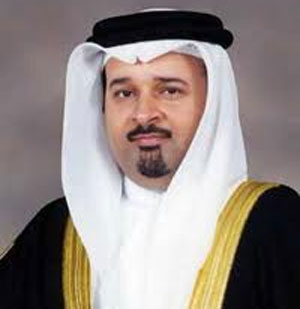
Education 'key to tap GCC potential'
London, January 29, 2013
GCC states are facing a challenge today on how to use the region's established infrastructure and industries to create better value for its citizens and the key to achieving this is investment in education and enhancing their capacity to take advantage of available opportunities, especially for the young, said a report citing a top Bahrain government official.
The infrastructure investments combined with the competitive advantages of the GCC members has triggered a fundamental transformation of the economies of the group, Finance Minister and Minister in charge of Oil and Gas Affairs Shaikh Ahmed bin Mohammed Al Khalifa was quoted as saying in the Gulf Daily News, our sister publication.
He was speaking at the Chatham House Middle East and North Africa Energy Conference 2013, held in London.
"The GCC today is a driving force in global aviation and hosts major sea ports and free zones along with three of the world's five largest aluminium smelters, and its petrochemical sector has become a major global player, he pointed out.
The GCC states, he said, have managed a fundamental transformation of their economies and societies against the backdrop of substantial oil and gas wealth. "This was a process that has been more successful in the GCC than in many other resource-rich countries," he said.
"Accumulated budget surplus of the six GCC member states over the last decade has been used wisely through investments in areas such as airports, sea ports, logistics zones and road networks; government schools and universities; housing, hospitals and free public health services; oil and gas exploration, refining, and supply lines which increase productivity and revenues but more importantly help maintain worldwide exports of energy supplies at a stable and viable price," he stated.
"The development of this industrial base in the GCC created sustainable industries independent of crude oil sales and also triggered strong real GDP growth of about four per cent per annum over the past three decades, more than the world average of 3 per cent per annum or the growth rates achieved by other resource-rich countries.
"This has also triggered the creation of about seven million new jobs for locals as well as foreigners in the past decade alone.
"As a result, the region has seen substantial inflows of highly trained foreign workers who in many instances have transferred their knowledge to the local workforce, thereby increasing the competitiveness of local talent and the region as a whole," he added.
The minister highlighted the drop of unemployment in Bahrain from 16 per cent in 2006 to 4 per cent in 2012 after major labour market reforms and good economic growth.
He also commended the development of the civil society thanks to economic growth, employment opportunities in the public and private sectors, broad-based education and a comprehensive social welfare system.
He reviewed the 2002 constitutional amendments which encouraged democracy and the on-going effort to spread the spirit of dialogue and national consensus, stressing that despite the recent regrettable events in Bahrain, things were proceeding on the right track as after inclusive dialogue, further constitutional reforms were initiated in 2012 and the findings of the Bahrain Independent Commission of Inquiry were instigated and accepted.
Expressing gratitude to other GCC member states for the support demonstrated through the Gulf Development Programme, the minister said that the scheme would enable Bahrain to start a wide range of projects in housing, education, infrastructure, and electricity and water sectors as well as social development and youth-related programmes.
These projects will have direct impact on people's daily lives, will provide a better environment to attract further investment, will enhance economic competitiveness and create more job opportunities.
He also highlighted the importance of the privatisation strategy undertaken by the government with a vision of strengthening the role of the private sector in the development process while enhancing the regulatory and supervisory nature of the government.
Within the Economic Vision 2030, the government has provided necessary support to institutions such as the Bahrain Development Bank and Tamkeen.
The latter has invested around $185 million in training programmes and financial aid for small and medium enterprises, which account for over 90 per cent of private enterprises in Bahrain.
Moving to the oil and gas sector, the minister provided a brief review of some of the major projects in this domain such as increasing the production of the Bahrain Field, expanding the capacity of the refinery and enhancing the production of natural gas.
He also reviewed efforts to diversify energy resources in the GCC countries and policies being implemented to increase energy efficiency.
"The future carries many opportunities and challenges but I am optimistic that we will continue to have high growth rates and opportunities to ensure that our people continue to enjoy the prosperity that comes not only with oil income but with general economic growth in all sectors," the minister added.-TradeArabia News Service







